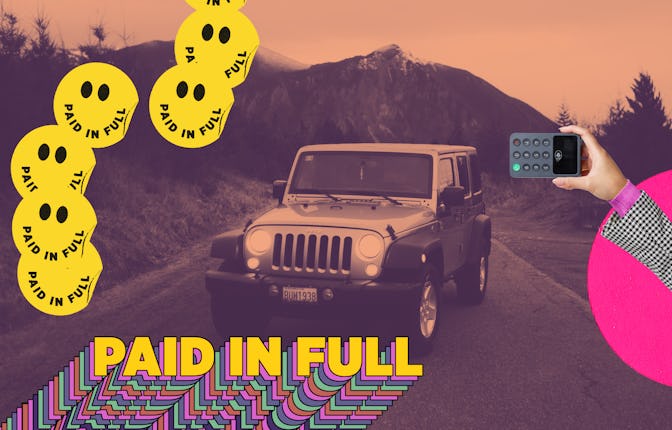How I paid off $100K in debt in 7 years
We figured as long as we could pay the minimum we would be fine. We were wrong.

For most of us, debt is a necessary evil. Paying it off can be one of the most freeing, empowering accomplishments in the world, worthy of celebration. Mic's series Paid in Full tells the stories of these triumphs, and just might help you figure out how to get to balance zero, too.
Name: Toni Husbands of Debt Free Divas
City/state: Chicago, IL
Amount of debt: $107,000
Type of debt: Credit card, student loans, tax debt, car loans, timeshare
How long it took to pay off: 7 years
Jobs held while paying the debt: Project manager, entrepreneur
I graduated from University of Oklahoma and in the late 90s before college debt levels ballooned. Credit cards and student loans were the first type of loan I signed up for. Leaving college, I had $21,000 in student loans and about $2,000 in credit card debt. Then I also took out a $13,000 car loan to purchase my first car.
After getting married in 2002, my husband came in with $20,000 in credit card debt, a small student loan, and a car lease. Finally, we opened a laundromat. We mismanaged our tax obligations and that led to about $20,000 in back taxes to repay. We took out a Home Equity Loan to buy an investment property, which cost $10,000, and we also financed a timeshare, which was about $7,000. We clearly never met a loan we didn’t like.
Taking on the debt wasn’t a tough decision because we had good paying jobs and great credit and we just figured as long as we could pay the minimum, we would be financially safe. Both my husband and I were both given basic financial education from our parents, and I grew up with the idea that paying your bills on time and keeping your credit healthy was the most important financial idea.
While that's a good start, I've since learned that a more sound and long-term approach is to focus on minimizing and ultimately eliminating consumer debt specifically. But both of us were raised with the idea that debt is normal and something we should accept as a normal way of doing life.
Our credit has generally been in the high 700s / low 800s, which is why it was so easy for us to get loans and amass debt. The moment we started to realize that our approach was flawed was when I quit my job to start a business. Our income dropped and we still had so much debt to manage. That's when I came across Dave Ramsey and The Total Money Makeover, which was the first time I was introduced to the idea of living within your means, saving and paying cash for consumables, and aggressively working to pay off debt.
But both of us were raised with the idea that debt is normal and something we should accept as a normal way of doing life.
The biggest thing for us was starting to live within a budget. We never really had to budget because our income was more than enough; when it dropped (about 30%), we had to pay more attention. At the same time, I decided to start aggressively paying off debt. We used the debt snowball method, which started with about $450 extra a month.
When we paid off the first credit card that was a mental boost. We did things like cooking at home, looking for budget friendly ways to travel like visiting family and friends to avoid hotel costs, and finding free/low cost entertainment in the city. We dropped down to one car, which we maintain to this day. I also went back to work full-time to help tackle the big debts. By the end, we were paying $2000/month to finish out our debt snowball.
Being on the same page was a tough hurdle to overcome. My husband didn't agree that paying off debt should be a priority at first, so I had to figure out how to stay consistent in things that I could that didn't impact him: doing my own hair, cutting down on nail salon trips, cooking at home so he didn't stop at a restaurant for dinner. After about a year and seeing the progress we made, he reluctantly came on board. Now he's convinced that paying cash for big ticket items is a better way to do life.
We’ve had to take on debt for a project here or there, but the priority is to pay that debt off as quickly as possible. It's much less stressful for me. If I could give advice to someone in a similar situation, it would be to recognize that the process of adjusting your financial approach to living and paying off debt may be a long process.
Experiment until you find a way to make this a lifestyle vs restricting yourself in ways that aren't sustainable. Also, it's best to pair with an accountability buddy — someone on the same track. This is about improving your lifestyle, not a quick fix. Don't give up if it takes a bit for the process to stick. Give yourself lots of grace and go at it again.